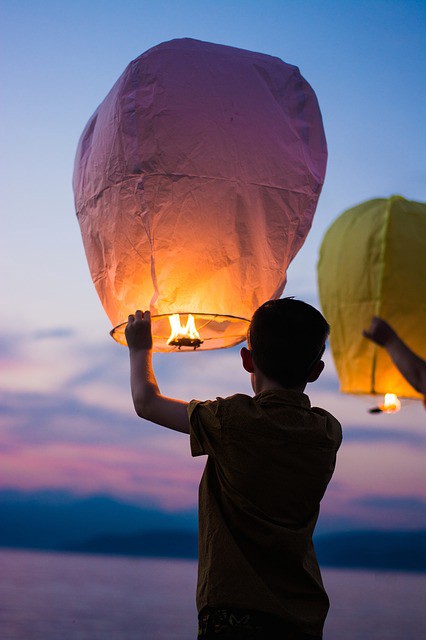The span from Thanksgiving to New Year’s is only about five weeks, but it’s an unusual and often intense time. It has its own playlist of songs, a unique color scheme, interesting sweaters, and lots of expectations. We’re told, “It’s the most wonderful time of the year,” but not everyone delights in the holiday spirit. Others find this season difficult, unpleasant, or simply lacking in real meaning. If you’re in the latter camp, or just want to experience more connection, meaning, and sweetness around the holidaze — or in general — it may be time to rediscover ritual.
For many Westerners, the word ritual has religious connotations, but you can experience the value of ritual with or without a religious intention. Not everyone has an interest in the rituals of organized religion, and even for those who do, there’s a specialness in forging rituals of your own that feel good and meaningful to you.
People have practiced rituals through the ages to establish and become more in tune with the natural order and rhythms in our lives. Our rituals become anchor points to remind us of what’s important. They give us a reason to slow down, connect, and feel gratitude. For example, a meal without the ritual is just an act of filling our stomach. But with the ritual — cooking the food with love, expressing our gratitude, sharing it with others, lighting some candles perhaps — it becomes a deeply nourishing event.
In a time when humans want the CliffsNotes version of everything, adding ritual can seem unnecessarily complicated. But it’s for precisely this reason that ritual is important. Daily exposure to a hyperactive world of constant emails, a plethora of TV channels, and excessive product choices leave us hollow. Ritual invites us to stop and go deep.
Ritual can run the gamut, from serious to light, and simple to complex. Here are a few basic guidelines to get you started:
1. Look for opportunities to add meaning. Rituals allow us to elevate ordinary moments into moments of reverence. A ritual can be an activity in itself or it can be based around some task or event. You could create a daily ritual for the specific purpose of setting a positive tone for each day. You could also create a ritual around eating or washing, to make it a more deliberate and special act.
Seriousness is not necessary, but respect for the value and significance of what you aim to do makes a real difference in its impact.
2. Establish a structure. It helps lend legitimacy to your ritual when it has an opening and a closing. The opening could be as simple as acknowledging what the intention of the ritual is. The closing could be as simple as restating the purpose, or expressing gratitude for what was done.
3. Give the occasion significance. Besides the opening and closing, the main thing that makes a ritual stand out is that it’s different from our usual way of doing things. It’s this difference, this specialness, that makes a ritual become a checkpoint that infuses a sense of meaning. Besides making your presence different, you might incorporate one or more elements to make the ritual unique, like lighting a candle, putting on a special piece of clothing, taking off your shoes, placing your hands on the earth, looking at a meaningful picture, eating or drinking something special, or whatever feels good to you.
I encourage you to establish a new ritual this holiday season. Make this time more meaningful and grounded. The more meaning you can cultivate in your life, the sweeter your life will be. It’s simple but true.
* * * *
Briana Borten and Dr. Peter Borten are the authors of the new book, The Well Life: How to Use Structure, Sweetness, and Space to Create Balance, Happiness, and Peace (Adams Media, December 2, 2016). They are also the creators of the Rituals of Living online community and Dragontree, a holistic wellness brand. Briana is a Mastery Coach with an extensive background in coaching clients to help them reach personal breakthrough and mastery. Peter is a doctor of Asian medicine who helps people attain whole health of body and mind. He has authored hundreds of articles, spanning topics such as stress, emotional wellness, nutrition, fitness, and our connection with nature. Learn more at: www.thedragontree.com.
Originally published at medium.com


